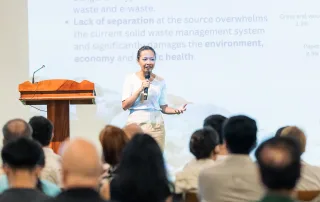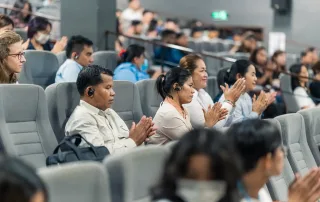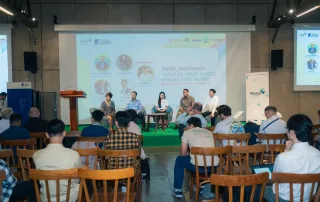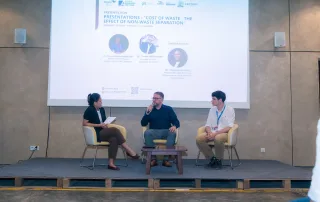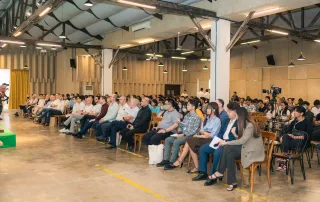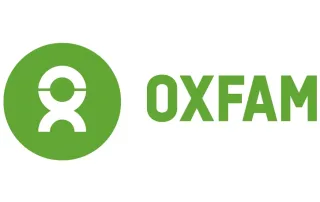About
Cambodia is entering a critical phase in its sustainability journey. As environmental pressures intensify especially with increasing waste volumes and climate-related risks, it costs Cambodia both the well being of the people, our environment and economy. We urgently need practical and inclusive solutions that strengthen long-term resilience. By working holistically across sectors and communities, Cambodia can shape a future that is sustainable, inclusive, and ensures no one is left behind.
In 2020, Cambodia generated approximately 4.78 million tons of municipal solid waste (MSW), driven by rapid economic growth, urbanization, and population increase. While progress has been made in improving solid waste management—from infrastructure development such as landfills, to local waste management planning at provincial and municipal levels, and the integration of digital tools—challenges remain. Landfill management is still limited, and systemic capacity for long-term change is lacking.
Beyond waste, Cambodia faces broader societal and environmental challenges. Communities continue to struggle with limited access to safe water, sanitation, electricity, and quality healthcare. Climate risks further threaten livelihoods, while women remain burdened by unpaid care work, and SMEs, especially women-led, face barriers in finance and market access. Despite strong economic growth, inequality persists, and vulnerable groups are too often left behind.
Yet, these challenges also present new opportunities. This is where small and medium enterprises (SMEs), strategic partnerships, and innovation play a vital role. SMEs are well-positioned to lead practical, community-based solutions and contribute to a more inclusive and responsible waste management ecosystem in Cambodia.
In Cambodia, SMEs are considered the backbone of the economy, contributing significantly to employment and GDP. SMEs constitute the majority of businesses, making up over 90% of registered firms in Cambodia.
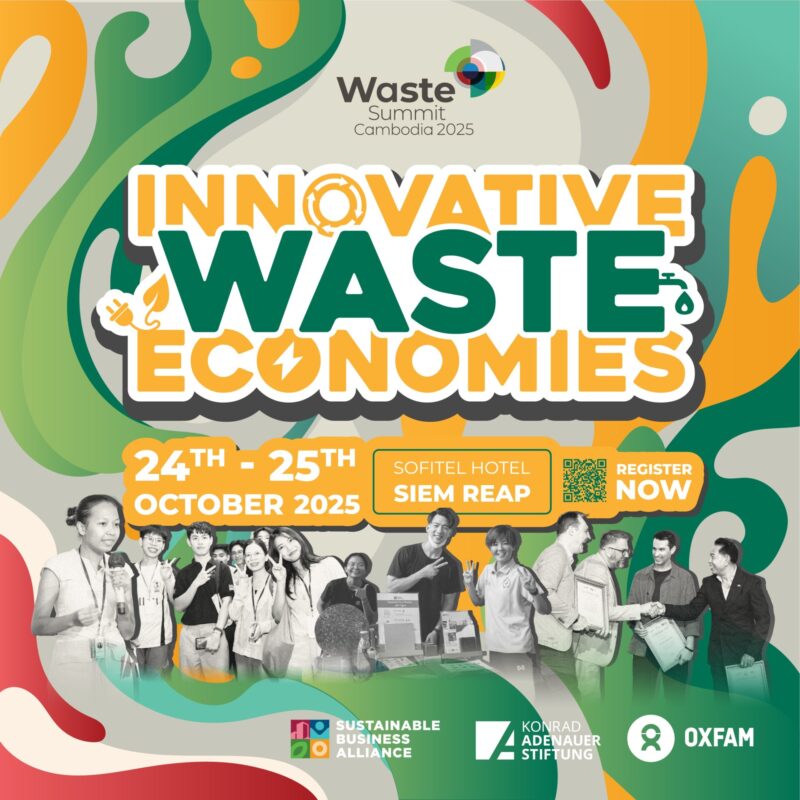
They are estimated to have contributed 50% to 63% to the country’s Gross Domestic Product (GDP) and provide jobs to 60% to 70% of the Cambodian workforce, hence holding a crucial role for poverty reduction and economic growth. Their flexibility and community ties make them ideal partners for scalable, locally grounded solutions. Yet, they need stronger support to grow responsibly and inclusively ensuring that business expansion creates value for people and protects the planet.
This is why convening the Waste Summit together with the Inclusive and Responsible Business Forum is so important. It provides a platform to address pressing environmental and social challenges, while empowering SMEs to become engines of inclusive and responsible growth in Cambodia.
Sub Theme
01. Waste treatment and Economy
- Beyond Landfills: Business opportunities in landfill management and alternative treatments.
- Holistic Approach to Solid Waste Management: Aligning Waste Separation at Source with Integrated Treatment Solutions.
- Digital Transformation in SWM.
- Organic, Plastic and Hazardous Waste Economies: Exploring solutions, partnerships and showcase do-able initiatives.
- Inclusive and Responsible Business in Cambodia: real-world cases from agriculture, healthcare, manufacturing, and digital services.
- Circular Business: empowering communities and SMEs for sustainable waste solutions and business models.
- Women Economic Empowerment: approaches to gender equality by SMEs.
- Inclusive Business and Waste Management
02. Inclusive and Responsible Business
03. Sustainable Supply Chains
- EU-Focused on Sustainable Supply Chains
- Partnership with Purpose: Collaborative models for systemic change.
04. Cross-sector Innovation and Partnership for Sustainability
Key Program
WASTE SUMMIT CAMBODIA
Take a peek inside our summit

